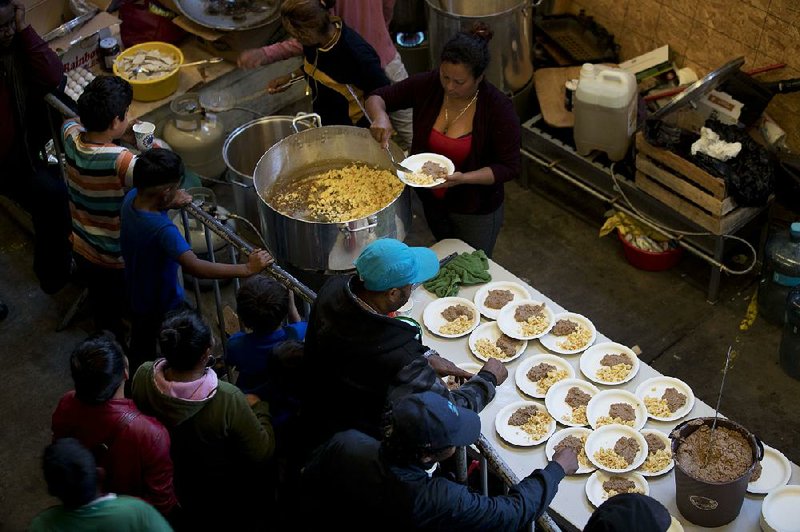MEXICO CITY -- The United States and Mexico announced Tuesday a bilateral assistance program to curb migration from Central America, signaling an early vote of confidence from President Donald Trump's administration in the foreign policy of new Mexican President Andres Manuel Lopez Obrador.
The United States announced a total contribution of $10.6 billion, most of which will be allocated from existing aid programs. Around $4.5 billion of that sum comes from new loans, loan guarantees and other private-sector support that could become available through the Overseas Private Investment Corp. The announcement appeared to be largely a symbolic gesture of cooperation between the two governments.
After two tumultuous years in the bilateral relationship and several tense weeks during the arrival of several migrant caravans, the Mexican government said it considered the U.S. collaboration a positive sign.
"The announcement reflects the importance that both countries grant to our bilateral relationship," said Marcelo Ebrard, Mexico's foreign minister.
The State Department said in a statement that the program would "jointly address the shared challenges of migration, narcotics trafficking, and the activities of trans-national criminal organizations."
The Mexican government said it would contribute $25 billion to development in southern Mexico over five years, which Lopez Obrador has suggested could serve as a source of employment to Central Americans who are granted work visas.
Lopez Obrador "has to take advantage of this opportunity, this honeymoon with Trump and Mexico," said Rafael Fernandez de Castro, a former senior Mexican foreign affairs official and now director of the Center for U.S.-Mexican Studies at the University of California at San Diego.
For years, the United States has allocated development assistance to Central America in the hope of preventing people from traveling to the United States. In 2016, in the wake of a surge in unaccompanied children arriving at the border, President Barack Obama's administration announced $750 million in funding to Honduras, Guatemala and El Salvador, dubbed the Alliance for Prosperity.
The Trump administration has been conducting a review of U.S. aid to Central America, aiming to overhaul or eliminate many of the programs started by the Obama administration. Those programs involved an overall commitment of approximately $2.6 billion in foreign assistance to Central American countries in fiscal 2015-2018. Those nations also promised to spend billions of dollars of their own money to tackle violence, joblessness, poor governance and other factors driving people to flee.
But the Trump administration has concluded that the programs didn't work, according to senior U.S. officials who have studied the Obama-era funding package.
In October, as a caravan of thousands of Central American migrants headed for the United States, Trump threatened to cut aid to Guatemala, Honduras and El Salvador, saying in a tweet that "they were not able to do the job of stopping people from leaving their country and coming illegally to the U.S."
It was not an idle threat: The State Department drew up plans for reductions of hundreds of millions of dollars in aid, according to U.S. officials. With many officials warning that such cuts could be deeply harmful, the Trump administration ultimately held back, those officials said.
Separately, the Trump administration said Tuesday that it is reversing a policy that required fingerprinting for all adults living in a household where a migrant child would live.
Parents and other sponsors have said the fingerprinting rule had slowed placement of children in homes, in part because some members of the household were afraid to be fingerprinted. The information is shared with Immigration and Customs Enforcement, and the agency has arrested more 150 people since information sharing began in June.
According to a memo provided to The Associated Press, adults no longer require fingerprinting unless there is a documented risk to the child, the child is especially vulnerable or a public records check shows the sponsors can be potentially disqualified.
There are more than 14,000 migrant children designated as unaccompanied minors in government-run shelters.
Information for this article was contributed by Kevin Sieff and Mary Beth Sheridan of The Washington Post and by Colleen Long of The Associated Press.
A Section on 12/19/2018

